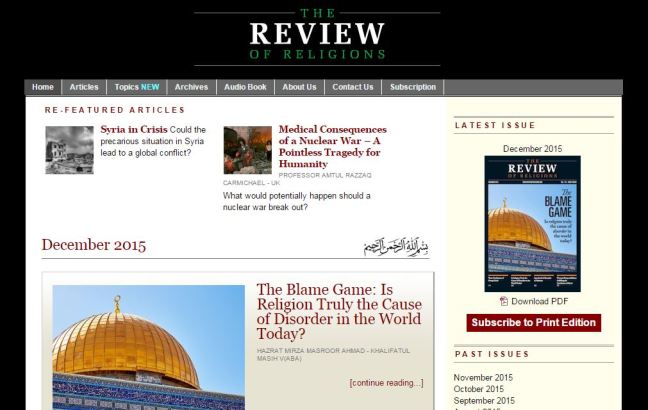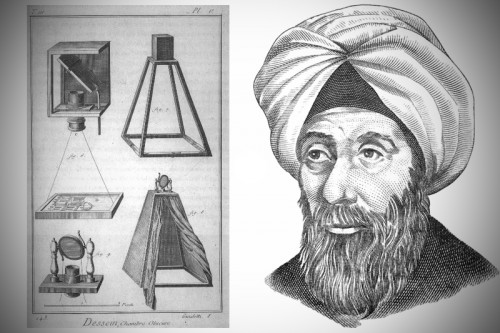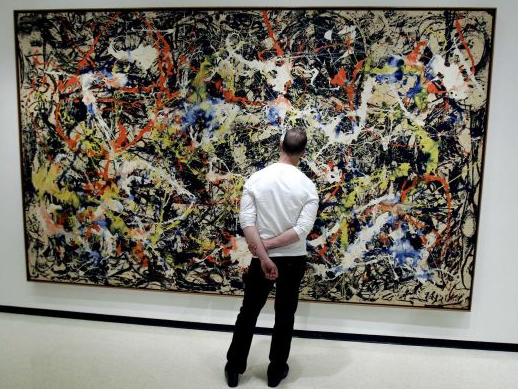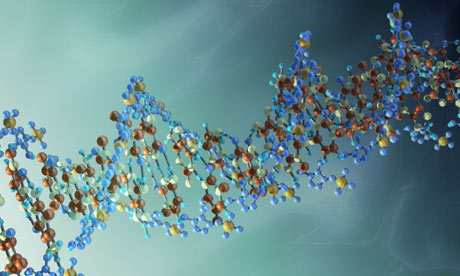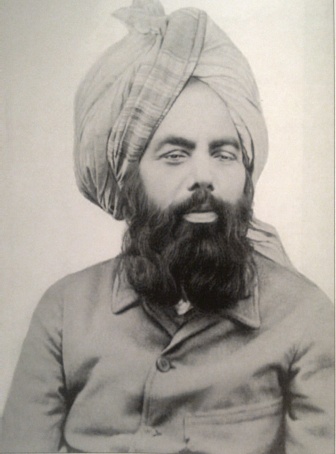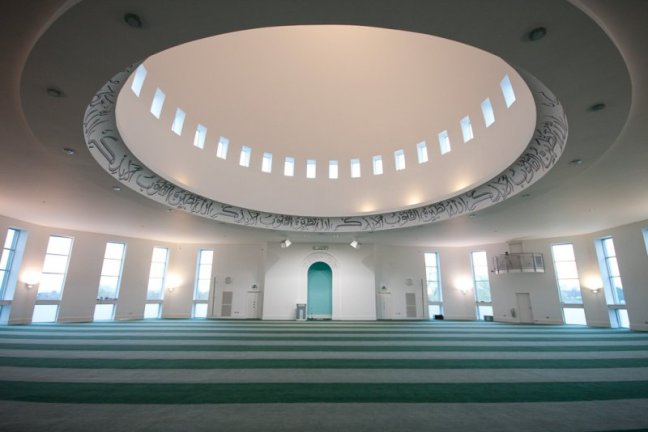
by Qasim Rashid
Ayesha’s Age: A response to the allegation made by atheists and non-Muslims in general that Ayesha was 6 or 9 when her marriage was consummated with Prophet Muhammad
The vitriolic anti-Islam film, “Innocence of Muslims” caused quite a worldwide uproar. Newsweek seemed to add to that uproar with their “Muslim Rage” edition. Fortunately, it backfired and #MuslimRage became the hottest new trend on Twitter. (Follow me@MuslimIQ) Still, Innocence of Muslims makes numerous vile accusations against Islam and its Noble Prophet (sa). One of these allegations is that the Prophet (sa) married Ayesha (rz) when she was underage. I have taken some time to quickly compile two arguments, one my own and one well-researched by another Muslim.
Together, these arguments demonstrate that the allegations levied against both Prophet Muhammad (sa) and Ayesha (rz) are meritless and based wholly on ignorance. The below evidence shows that far from being 6 or 9, Ayesha was likely 15-16 at the time of her consenting marriage, or as old as 18-20. Some scholars assert that she was actually only 12. Even if Hazrat Ayesha (rz) was only 12 at the time of her marriage and consummation, this should not be a cause for alarm for the clear reasons mentioned below.
The First Set of Arguments
The First Argument
The Catholic Encyclopedia says Mary Mother of Jesus (as) was 11 (and Joseph was 90) upon their marriage. [The Catholic Encyclopedia: An International Reference of Work on the Constitution, Doctrine, Dicipline, and History of the Catholic Church, New York Robert Appleton Company, Vol. VIII, Pg. 505]. Yet, we do not hear anti-Islam elements raise objection to this recorded fact of history. If Ayesha (rz), even at age 12, was too young to be married, then certainly Mary Mother of Jesus was too young. Likewise, if Prophet Muhammad (sa) at the age of 53 was too old to marry Ayesha, then Joseph at age 90 was certainly too old. Yet, such objections do not exist, demonstrating the double standard anti-Islam individuals assert against Muslims.
The Second Argument
The law of the Talmud holds that a woman is of marriable age when she is 12 yrs and 6 months old and “Marrying off one’s daughter as soon after she reaches adulthood as possible, even to one’s Slave.” Talmud, Pesachim 113a]. Hasidic Jews still practice this tradition that spans back thousands of years. In fact, the Talmud presents some shocking guidance on marriage, also stating, “A maiden aged three years and a day may be acquired in marriage by coition, and if her deceased husband’s brother cohabits with her, she becomes his.” [Talmud, Sanhedrin 55b].
Again, no objections are known from anti-Islam individuals to this practice, once again demonstrating the double standard. Historically speaking, Jews, Christians, and Muslims each held a social construct that permitted a person to be married at what our society considers young.
But, recognizing that things like life expectancy and social behavior were much different than they are now, two individuals in their pre or early teens marrying was not at all obscure. This is a fact that Jews, Christians, and Muslims each demonstrated. Most importantly, the concept of social construct must be reiterated. It was not just ancient Jews, Christians, and Muslims that recognized earlier teens or younger as acceptable ages for marriage. This is a concept that permeated our Western societies until only very recently, as explained next.
The Third Argument
For centuries in Scotland, the age of consent for girls was 12—and parental consent was unnecessary. [G T Bisset-Smith. 1st edition. Edinburgh: William Green & Sons, (1902)]. Only in 1929 was the age raised to 16 for girls. [Id.] Consider the facts of appropriate ages to marry of American State Laws. In New Hampshire, the legal age for girls is 13 with parental consent. In Massachusetts, the legal age for girls is 12 with parental consent. In Mississippi, there isno age minimum for girls, as long as there is parental consent. In California, there is no age minimum for girls, as long as there is parental consent. And of course, as we know, Ayesha (rz) certainly had parental consent. This information is available at: http://topics.law.cornell.edu/wex/table_marriage#g
So the reality is that only recently has social construct decided that 18 is the age of maturity among men and women. Nothing says that 18 is the wrong age, or the right age across all times and places. We can only state that it is the correct age for our time and place, because this is the age we have agreed upon as a society. Thus, in our age, marriage below 18 is either forbidden, or requires certain highly controlled conditions to ensure the rights of the persons under 18 are not usurped. But, to make the jump to accuse Prophet Muhammad (sa) of acting inappropriately, simply because our social construct disagrees with a social construct that our American forefathers, ancient Christian and Muslim cultures, and contemporary Hasidic Jewish cultures practice—such a jump is unqualified and meritless.
But so far, we have only demonstrated that if Ayesha (rz) was married when she was as young as 11 or 12, history and our American forefathers demonstrate that such a marriage was not out of the norm. The next section demonstrates that Ayesha (rz) was 15-16 at the time of her marriage to Prophet Muhammad (sa), and possibly as old as 18-20.
The Second Set of Arguments
*Disclaimer – I am not the author of the below scholarship. I am reposting because it is excellently researched, appropriately referenced, and repudiates the baseless allegations that Prophet Muhammad (sa) married Ayesha (rz) when she was underage. Please read each of the arguments as it soundly responds from every angle to the allegations that Ayesha was under age at the time of her marriage.
The First Argument
Though some of these narratives are reported in Bukhari, most of these narratives are reported only by Hisham ibn `urwah reporting on the authority of his father. An event as well known as the one being reported, should logically have been reported by more people than just one, two or three.
The Second Argument
It is quite strange that no one from Medinah, where Hisham ibn `urwah lived the first seventy one years of his life has narrated the event [from him], even though in Medinah his pupils included people as well known as Malik ibn Anas. All the narratives of this event have been reported by narrators from Iraq, where Hisham is reported to have had shifted after living inMedinah for seventy one years.
Again, the argument that all those who heard this narrative from Hisham ibn `urwah were Iraqis, is a simple statement of fact. This can be checked in the biographical sketches of these narrators in any of the books written on the narrators.
The Third Argument
Tehzeeb al-Tehzeeb, one of the most well known books on the life and reliability of the narrators of the traditions of the Prophet (pbuh) reports that according to Yaqub ibn Shaibah:“narratives reported by Hisham are reliable except those that are reported through the people of Iraq.” It further states that Malik ibn Anas objected on those narratives of Hisham which were reported through people of Iraq (Vol. 11, pg. 48 – 51).
The actual statements, their translations and their complete references are given below:
Yaqub ibn Shaibah says: He [i.e. Hisham] is highly reliable, his narratives are acceptable, except what he narrated after shifting to Iraq. (Tehzeeb al-Tehzeeb, Ibn Hajar Al-`asqalaaniy, Arabic, Dar Ihya al-turath al-Islami, Vol. 11, pg. 50)
I have been told that Malik [ibn Anas] objected on those narratives of Hisham which were reported through people of Iraq. (Tehzi’bu’l-tehzi’b, Ibn Hajar Al-`asqala’ni, Arabic, Dar Ihya al-turath al-Islami, Vol. 11, pg. 50)
All the hadith Hisham related regarding the age of Ayesha are from the time he was in Iraq. From a historical and evidentiary perspective, this already puts into severe doubt the veracity of such claims.
The Fourth Argument
Meezaan al-Ai`tidaal, another book on the [life sketches of the] narrators of the traditions of the Prophet (pbuh) reports that when he was old, Hisham’s memory suffered quite badly (Vol. 4, pg. 301 – 302)
The actual statement, its translation and its complete references is given below:
When he was old, Hisham‘s memory suffered quite badly (Meezaan al-Ai`tidaal, Al-Zahabi, Arabic, Al-Maktabah al-Athriyyah, Sheikhupura, Pakistan, Vol. 4, pg. 301).
So now we have evidence that when Hisham related the traditions related to Ayesha’s age, he did so while his memory suffered severely. Already, no court of law would consider such testimony valid, not even in a civil court where the burden of proof is quite low compared to a criminal court.
The Fifth Argument
According to the generally accepted tradition, Ayesha (ra) was born about eight years beforeHijrah. But according to another narrative in Bukhari (Kitaab al-Tafseer) Ayesha (ra) is reported to have said that at the time Surah Al-Qamar, the 54th chapter of the Qur’an , was revealed, “I was a young girl”. The 54th Surah of the Qur’an was revealed nine years before Hijrah. According to this tradition, Ayesha (ra) had not only been born before the revelation of the referred surah, but was actually a young girl (jariyah), not an infant (sibyah) at that time. Obviously, if this narrative is held to be true, it is in clear contradiction with the narratives reported by Hisham ibn `urwah. I see absolutely no reason that after the comments of the experts on the narratives of Hisham ibn `urwah, why we should not accept this narrative to be more accurate.
The actual statements referred to in the above paragraph, their translations and their complete references are given below:
Ayesha (ra) said: I was a young girl, when verse 46 of Surah Al-Qamar, [the 54th chapter of the Qur’an ], was revealed. (Sahih Bukhari, Kitaab al-Tafseer, Arabic, Bab Qaulihi Bal al-saa`atu Maw`iduhum wa al-sa`atu adhaa wa amarr)
Ayesha was married after Hijrah (migration). Thus, if she could recall that Chapter 54 was revealed, she must have been at least 3-5 years old, plus the 9 years before hijrah, which places her at 12-14 before Hijrah and at least 14-16 before marriage. This makes it impossible that she was 9.
The Sixth Argument
According to a number of narratives, Ayesha (ra) accompanied the Muslims in the battle ofBadr and Uhud. Furthermore, it is also reported in books of hadith and history that no one under the age of 15 years was allowed to take part in the battle of Uhud. All the boys below 15 years of age were sent back. Ayesha‘s (ra) participation in the battle of Badr and Uhudclearly indicate that she was not nine or ten years old at that time. After all, women used to accompany men to the battle fields to help them, not to be a burden on them.
A narrative regarding Ayesha‘s (ra) participation in Badr is given in Muslim, Kitaab al-jihaad wa al-siyar, Arabic, Bab karahiyah al-isti`anah fi al-ghazwi bikafir. Ayesha (ra) while narrating the journey to Badr and one of the important events that took place in that journey, says:
When we reached Shajarah.
It is quite obvious from these words that Ayesha (ra) was with the group traveling towardBadr.
A narrative regarding Ayesha‘s (ra) participation in the battle of `uhud is given in Bukhari,Kitaab al-jihaad wa al-siyar, Arabic, Baab Ghazwi al-nisaa wa qitalihinna ma`a al-rijaal.
Anas reports that On the day of Uhud, people could not stand their ground around the Prophet (pbuh). [On that day,] I saw Ayesha (ra) and Umm-e-Sulaim (ra), they had pulled their dress up from their feet [to save them from any hindrance in their movement].”
As far as the fact that children below 15 years were sent back and were not allowed to participate in the battle of `uhud, it is narrated in Bukhari, Kitaab al-maghaazi, Baab ghazwah al-khandaq wa hiya al-ahzaab, Arabic.
Ibn `umar (ra) states that the Prophet (pbuh) did not permit me to participate in Uhud, as at that time, I was fourteen years old. But on the day of Khandaq, when I was fifteen years old, the Prophet (pbuh) permitted my participation.”
This battle took place before Ayesha’s marriage to Prophet Muhammad, so now we see that she was at least 15-16 years old.
The Seventh Argument
According to almost all the historians Asma (ra), the elder sister of Ayesha (ra) was ten years older than Ayesha (ra). It is reported in Taqreeb al-Tehzeeb as well as Al-Bidaayah wa al-Nihayahthat Asma (ra) died in 73 hijrah when she was 100 years old. Now, obviously if Asma (ra) was 100 years old in 73 hijrah she should have been 27 or 28 years old at the time of hijrah. IfAsma (ra) was 27 or 28 years old at the time of hijrah, Ayesha (ra) should have been 17 or 18 years old at that time. Thus, Ayesha (ra), if she got married in 1 AH (after hijrah) or 2 AH, was between 18 to 20 years old at the time of her marriage.
The relevant references required in this argument are provided below:
For the Difference of Ayesha’s (ra) and Asma’s (ra) Age:
According to Abd al-Rahman ibn abi zannaad:
Asma (ra) was ten years older than Ayesha. (Siyar A`la’ma’l-nubala’, Al-Zahabi, Vol. 2, pg. 289, Arabic, Mu’assasatu’l-risala’h, Beirut, 1992)
According to Ibn Kathir:
She [i.e. Asma] was ten years elder to her sister [i.e. Ayesha]. (Al-Bidaayah wa al-Nihaayah, Ibn Kathir, Vol. 8, pg. 371, Arabic, Dar al-fikr al-`arabiy, Al-jizah, 1933)
For Asma’s (ra) Age at Her Death in 73 AH
According to Ibn Kathir:
She [i.e. Asma] witnessed the killing of her son during that year [i.e. 73 AH], as we have already mentioned, five days later she herself died, according to other narratives her death was not five but ten or twenty or a few days over twenty or a hundred days later. The most well known narrative is that of hundred days later. At the time of her death, she was 100 years old. (Al-Bidaayah wa al-Nihaayah, Ibn Kathir, Vol. 8, pg. 372, Arabic, Dar al-fikr al-`arabiy,Al-jizah, 1933).
According to Ibn Hajar Al-Asqalaaniy:
She [i.e. Asma (ra)] lived a hundred years and died in 73 or 74 AH.” (Taqreeb al-Tehzeeb, Ibn Hajar Al-Asqalaaniy, Pg. 654, Arabic, Bab fi al-nisaa, al-Harf al-alif, Lucknow)
The Eighth Argument
Tabari in his treatise on Islamic history, while mentioning Abu Bakr (ra) reports that Abu Bakrhad four children and all four were born during the Jahiliyyah – the pre-Islamic period. Obviously, if Ayesha (ra) was born in the period of jahiliyyah, she could not have been less than 14 years in 1 AH – the time she most likely got married.
The original statement in Tabari, its translation and reference follows:
All four of his [i.e. Abu Bakr’s] children were born of his two wives – the names of whom we have already mentioned – during the pre-Islamic period. (Tarikh al-umam wa al-mamloo’k, Al-Tabari, Vol. 4, Pg. 50, Arabic, Dar al-fikr, Beirut, 1979)
The Ninth Argument
My ninth argument was:
According to Ibn Hisham, the historian, Ayesha (ra) accepted Islam quite some time before`umar ibn al-Khattab (ra). This shows that Ayesha (ra) accepted Islam during the first year of Islam. While, if the narrative of Ayesha‘s (ra) marriage at seven years of age is held to be true, Ayesha (ra) should not have been born during the first year of Islam.
According to Ibn Hisham, Ayesha (ra) was the 20th or the 21st person to enter into the folds of Islam (Al-Sirah al-Nabawiyyah, Ibn Hisham, Vol. 1, Pg. 227 – 234, Arabic, Maktabah al-Riyadh al-hadithah, Al-Riyadh) While `umar ibn al-khattab was preceded by forty individuals (Al-Sirah al-Nabawiyyah, Ibn Hisham, Vol. 1, Pg. 295, Arabic, Maktabah al-Riyadh al-hadithah, Al-Riyadh).
The Tenth Argument
Tabari has also reported that at the time Abu Bakr planned on migrating to Habshah (8 years before Hijrah), he went to Mut`am – with whose son Ayesha (ra) was engaged – and asked him to take Ayesha (ra) in his house as his son’s wife. Mut`am refused, because Abu Bakr had embraced Islam, and subsequently his son divorced Ayesha (ra). Now, if Ayesha (ra) was only seven years old at the time of her marriage, she could not have been born at the time Abu Bakr decided on migrating to Habshah. On the basis of this report it seems only reasonable to assume that Ayesha (ra) had not only been born 8 years before hijrah, but was also a young lady, quite prepared for marriage.
Unfortunately, I do not have the primary reference to this argument at the moment. The secondary reference for this argument is: Tehqiq e umar e Siddiqah e Ka’inat, Habib ur Rahman Kandhalwi,Urdu, Pg. 38, Anjuman Uswa e hasanah, Karachi, Pakistan
The Eleventh Argument
According to a narrative reported by Ahmad ibn Hanbal, after the death of Khadijah (ra), whenKhaulah (ra) came to the Prophet (pbuh) advising him to marry again, the Prophet (pbuh) asked her regarding the choices she had in her mind. Khaulah said: “You can marry a virgin (bikr) or a woman who has already been married (thayyib)”. When the Prophet (pbuh) asked about who the virgin was, Khaulah proposed Ayesha‘s (ra) name. All those who know the Arabic language, are aware that the word “bikr” in the Arabic language is not used for an immature nine year old girl. The correct word for a young playful girl, as stated earlier is “Jariyah“. “Bikr” on the other hand, is used for an unmarried lady, and obviously a nine year old is not a “lady”.
The complete reference for this reporting of Ahmad ibn Hanbal is: Musnad Ahmad ibn Hanbal, Vol 6, Pg 210, Arabic, Dar Ihya al-turath al-`arabi, Beirut.
The Twelfth Argument
According to Ibn Hajar, Fatimah (ra), the daughter of Prophet Muhammad, was five years older than Ayesha (ra). Fatimah (ra) is reported to have been born when the Prophet (pbuh) was 35 years old. Thus, even if this information is taken to be correct, Ayesha (ra) could by no means be less than 14 years old at the time of hijrah, and 15 or 16 years old at the time of her marriage.
Ibn Hajar‘s original statement, its translation and reference follows:
Fatimah (ra) was born at the time the Kaa`bah was rebuilt, when the Prophet (pbuh) was 35 years old… she (Fatimah) was five years older that Ayesha (ra). (Al-Isabah fi Tamyeez al-Sahaabah, Ibn Hajar al-Asqalaniy, Vol. 4, Pg. 377, Arabic, Maktabah al-Riyadh al-Haditha, al-Riyadh, 1978)
These are all the references for the material I provided in my initial response.
Critics cite that Tabari, Abu Dawood, and Bukhari also says Ayesha was 9. Such critics miss the point on Hisham ibn `urwah. They are unaware of the fact that each one these traditions, whether it is from Tabari, Bukhari, Muslim or Abu Dawood, is either narrated by Hisham ibn `urwah or is reported to the respective author by or through an Iraqi. Not even a single narrative is free from either of the two problems.
I have quoted Tabari, Bukhari and Muslim to show that even their own information contradicts with the narrative regarding Ayesha‘s (ra) age. Thus, when the narrative of Ayesha‘s (ra) age is not reliable and when there is information in the same books that contradicts the narrative of Ayesha‘s age, I see absolutely no reason to believe that the information on Ayesha‘s (ra) age is accepted (when there are adequate grounds to reject it) and the other (contradictory) information is rejected (when there is no ground to reject it).
Conclusion
Thus, taking all facts into consideration, it is clear that the allegation proposed in Innocence of Muslims is one without merit, one no person of intelligence can accept. Prophet Muhammad (sa) and Ayesha (rz) enjoyed a loving, mutual, consenting, legal, and sincere marriage—one to be emulated by all people, Muslim and non-Muslim alike. As a final point, I encourage readers to also check out Myriam Francois-Cerrah‘s excellent piece on Ayesha (rz) published in The Guardian here: http://www.guardian.co.uk/commentisfree/belief/2012/sep/17/muhammad-aisha-truth
___________
If you are interested in reading more of the work of Qasim Rashid click here







